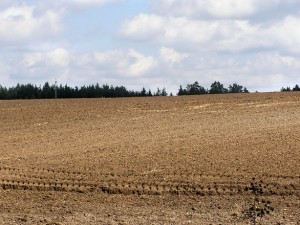The Hidden Dangers of Nitrates
You can’t taste them or see them, but if you live in an area near farms, there could be nitrates in your water. When we eat fresh produce there is a good chance that they may contain nitrates or you could be washing them in nitrate contaminated water. Most people are aware of the dangers of bacterial water contaminants or water containing lead, but nitrates could be a danger hidden in plain sight. 
How Nitrate Contamination Occurs:
Unfortunately, many of the fertilizer and feed products used by farmers contain nitrogen, which has the potential to leach into the soil. According to a study conducted out of UC Davis, plants are only using half of the nitrogen fertilizers which are applied to crops. The remaining nitrogen attaches to water molecules and seeps into the soil. This leaching means that eventually the contaminated water can make its way into drinking water sources, making the water harmful for human consumption. According to water quality officials, this is a serious matter, which if left unaddressed will only get worse.
What Is Being Done?
There are many growers around the country who are aware of the hidden danger of nitrates. These growers are dedicating resources to try and use these fertilizer products responsibly and generally reduce their use to minimize nitrogen exposure. Modern farming operations often use nitrogen liquid boost in their irrigation water through drip lines feeding the root zones of the plants. Some farming operations even have their own laboratories onsite, relying on science and research to fine-tune the application of fertilizers. Unfortunately, the pollution of groundwater with nitrate contamination has now become so widespread that voluntary measures are not sufficient. The Central Coast Regional Water Quality Control Board has now taken measures to address this issue. This means that Central Coast farmers were the first within California to need to comply with a host of new regulations, which were designed to mitigate this problem. This was a positive step for consumers in the area, who were faced with excess nitrates in their food and drinking water.
Protecting Your Family:
If you live in a farming area, which may have poor practices and high nitrate contamination, a drinking water system is the recommended method of removing harmful contaminants from tap or drinking water. Many of the domestic water treatment and filtration systems available are designed to remove a number of potentially harmful contaminants from water including nitrates. While water filter pitcher devices can remove nitrates from drinking water, they are not always a practical option for washing fresh produce and cooking. Therefore, many consumers are consider a whole house system. This ensures that the water is treated as soon as it enters your property and the water from any tap in the home is free of contaminants. Taking this measure means that not only is drinking water safe to drink, but you can fully enjoy all of the health benefits of eating fresh fruits and vegetables without worrying about consuming excess nitrates. Since nitrates can contaminate the groundwater, even if you don’t live in a farming area, you may wish to consider taking steps to ensure that you and your family are protected from nitrate contamination in your water supply.
About The Author:
Greg Scott is President of Valparaiso based Miracle/EcoWater Systems, the premier water conditioning company in Northwest Indiana serving the Lake, Porter and LaPorte County areas. A 3rd generation water treatment professional, Greg grew up in the family owned business started by his grandfather in the late fifties. He has made water treatment his life and under his direction and high-standards, the company’s water treatment experience, knowledge, and products are unrivaled in region.
Back to
